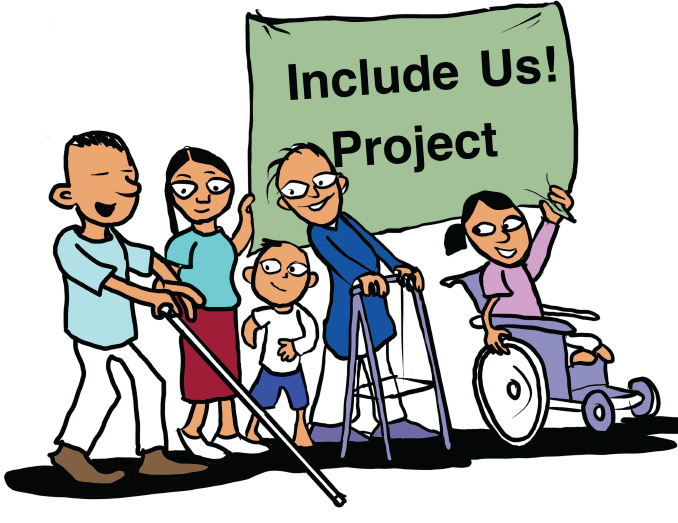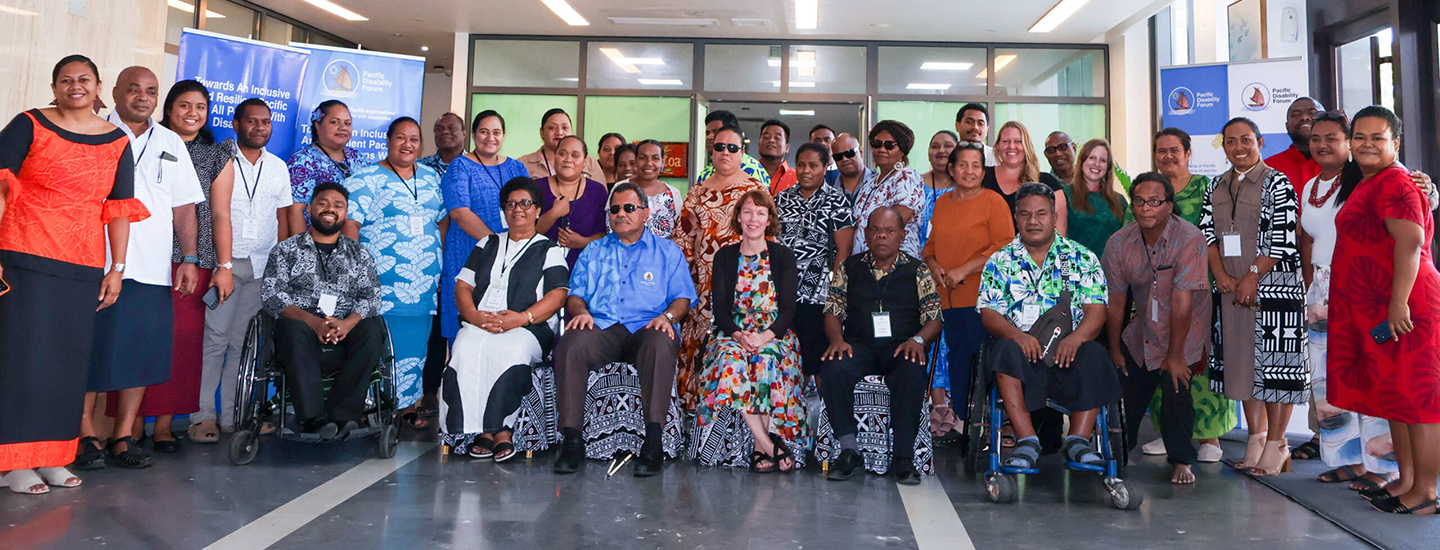Creating positive change for the people of Indonesia
Stories | August 26, 2019
Article & video blog by CBM Australia‘s CEO, Jane Edge.
In the next five days CBM Board Chair Mick Turnbull and I will be travelling across Indonesia to witness first-hand the life-changing work that has transformed the lives of thousands of people living with disabilities, their families and their communities.
Indonesia is a nation of contrasts. Although economic growth is high, more than 28 million of its people live in poverty.
People with a physical or psychosocial disability are 30 to 50 per cent more likely to live in poverty, while children with a disability are seven times less likely to go to school. Viewed as “suffering from a medical problem”, people with a disability are often treated as objects of charity.
For more than 40 years, CBM Australia has provided life-changing programs and sustainable support to the people of Indonesia.
In 1978, CBM started supporting Indonesian partners and in 2003 opened an office in Jakarta focused on its Prevention of Blindness (PBL) Programme.
Recognising the need to provide even greater assistance, CBM developed its landmark 2014 Country Plan focused on four key programs:
(1) effective eye health care and prevention of blindness;
(2) stronger community mental health and societal inclusion;
(3) community-based rehabilitation and care; and
(4) disaster risk reduction and emergency response.
The love and compassion of Australian supporters has enabled CBM programs to provide thousands of people with health care and rehabilitation; skills to get jobs or create businesses; and self-confidence to advocate for people with disabilities to be accepted in their community.
CBM has also focused on working with all levels of community and government to establish programs that include people with disabilities and will be self-sustaining into the future.
First stop – Banda Aceh and Pidie, Aceh Province, Sumatra.
Aceh is one of the poorest provinces in Indonesia and has experienced civil conflict followed by the terrible 2004 Boxing Day tsunami. These disasters have contributed to a high prevalence of physical disabilities and healthcare issues throughout Aceh.
CBM has a strong reputation in Aceh focused on livelihoods for people with disabilities and has experienced a great deal of success working with local governments.
CBM’s project in Aceh will centre on helping people develop their self-esteem and feel included in their community, on providing better ways to make a decent living, and on encouraging local government to better support people with disabilities.
Next stop – Tuban, East Java Province, Java.
East Java has the highest blindness occurrence among people 50 years of age and over. CBM’s Effective Eye Care program aims to improve eye health among this population and undertake preventative education and training.
This August marks a new chapter for CBM and its work in Indonesia.
By seeing our programs in action, meeting beneficiaries to hear their personal stories and gaining a stronger understanding of CBM’s work in Indonesia from our local partners, we can develop the next chapter of our work in Indonesia – the 2019 Country Plan – so that we can reach out and effectively help even more people.
Mick and I are looking forward to seeing the high-quality programs that your compassion has provided to the people living with disabilities. Follow our journey:
You can also get live tweets directly from me: twitter.com/janededge
And if you’re not on social media you can visit www.cbm.org.au/TOGETHER and subscribe to daily news.
Did you know?
Indonesia did not become the country’s official name until 1945 when it declared its independence from the Netherlands. However, the name ‘Indonesia’ was used as early as 1884 by a German geographer and is thought to derive from the Greek indos, meaning “India,” and nesos, meaning “island.”
There is a German connection for CBM as well.
In 1908, German pastor Ernst Christoffel founded CBM in Turkey with the opening of a home for children who were blind and orphaned. From these small beginnings, CBMI has grown into today being one of the world’s leading disability and development agencies. Christoffel built CBMI on core values such as Christianity, internationalism, professionalism, stewardship, honest communication and inclusion – all values we’re committed to today.
https://www.cbm.org.au/stories/40-years-of-disability-inclusion-work-in-indonesia
Related Stories

Vision for all: Why access to eye health is a precondition for inclusion
For millions of people in India, particularly those living...

Easy Read your way through our evaluation report
At CBM Australia, we recognise that accessibility is not optional – it is a...

Growing Stronger Together: Supporting OPDs across the Pacific
CBM Australia is proud to partner with Pacific Disability Forum on the Growing Stronger...
